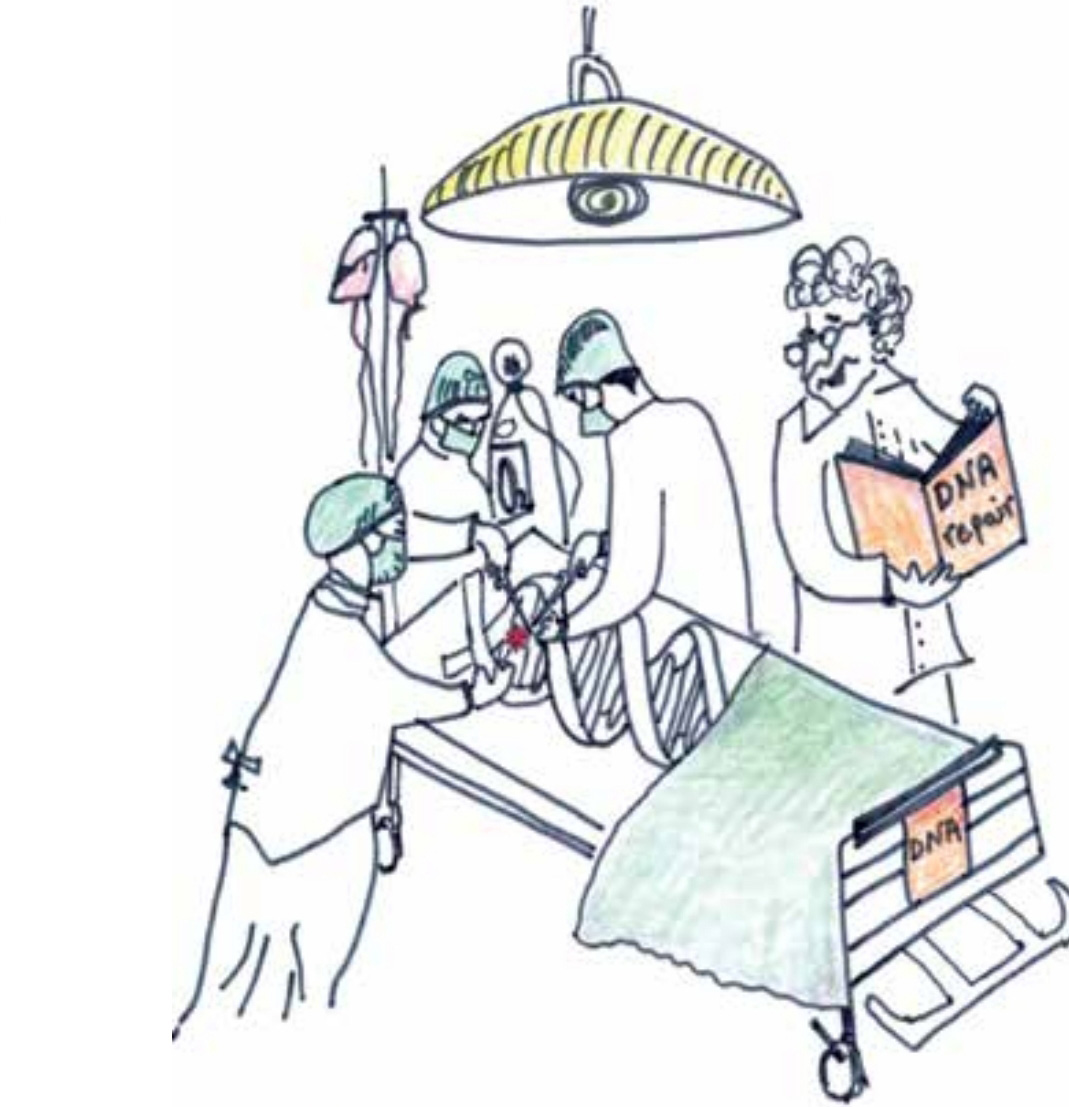The test could be a life-saver if routinely administered

Drawing: Dr. Tamar Paz-Elizur
Several years ago the Weizmann Institute of Science’s Prof. Zvi Livneh and his group proposed a blood test for three markers for DNA repair to be used to calculate a “personalized DNA repair score” indicating the chances of an individual developing lung cancer. In a recent study involving British patients, the scientists examined 150 individuals with non-small-cell lung cancer, and compared their results with those of 143 healthy controls. The DNA repair score of study participants with lung cancer was demonstrably lower than the control group across the board, establishing this activity as a robust biomarker for lung cancer risk ‒ independently of smoking. These results validated a previous study by his group in an Israeli population, showing that the new approach could potentially be implemented for more effective lung cancer screening worldwide.
Of course smoking is still the leading risk factor for all lung cancers, and there is screening, but it is recommended based on age and heavy smoking. Such screening misses most lung cancers because it does not take into account those who are at high risk for the disease but do not fulfil the current screening criteria. Thus this blood test, which uncovers an additional strong risk factor for lung cancer, could be a true life-saver if it were administered routinely to all those who are in even a low risk category: light smoking, age or family history.
A low DNA repair score may also help explain why some non-smokers nonetheless develop lung cancer
The study was led by Livneh and Senior Staff Scientist Dr. Tamar Paz-Elizur, both members of the Weizmann Institute’s Biomolecular Sciences Department, in collaboration with Prof. Sir Bruce Ponder of Cambridge University and Prof. Robert Rintoul from Royal Papworth Hospital and Cambridge University. It was based on years of research in Livneh’s lab, which uncovered these repair mechanisms as well as their less active versions and the details of their activity. The scientists’ findings were published in Journal of the National Cancer Institute-Cancer Spectrum (JNCI-CS). They demonstrated that a low DNA repair score reveals a five-fold greater risk for lung cancer than would typically be estimated based on age and smoking status alone. A low DNA repair score may also help explain why some non-smokers nonetheless develop lung cancer. Thus, including the DNA repair score in routine blood test could provide early diagnosis in the non-smoking population, who generally do not undergo preventative screening today.
In another, unexpected finding that emerged from this study, the research team found that a low DNA repair score in lung cancer patients, but not in healthy people, correlates with a broad increase in gene expression pathways that mediate the body’s immune response. This indicates that DNA repair score data could potentially contribute to personalized protocols by helping doctors predict how individual lung cancer patients will respond to immunotherapy.
Prof. Zvi Livneh is Head of the Swiss Society Institute for Cancer Prevention Research; his research is also supported by the Moross Integrated Cancer Center; the Rising Tide Foundation; the Mike and Valeria Rosenbloom Foundation; the Pearl Welinsky Merlo Foundation Scientific Progress Research Fund; the Steven B. Rubenstein Research Fund for Leukemia and Other Blood Disorders; Dana and Yossie Hollander; the Comisaroff Family Trust; the Wagner-Braunsberg Family Foundation; the Herbert L. Janowsky Lung Cancer Research Fund; and the Gerald O. Mann Charitable Foundation. Prof. Livneh is the incumbent of the Maxwell Ellis Professorial Chair of Biomedical Research.

Recent Comments